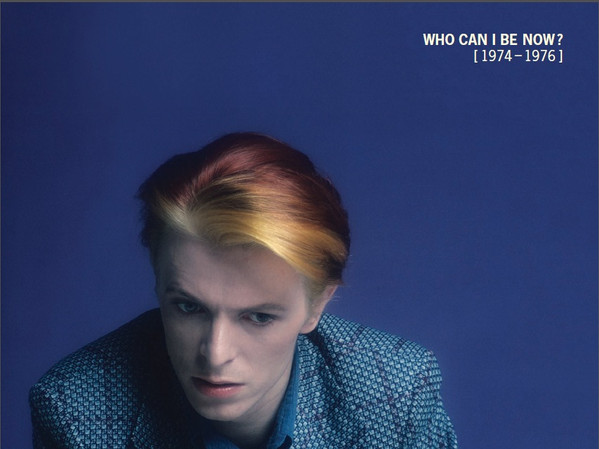8 January, 2025

It’s entirely unwittingly that I should be drifting, as if on a gentle wave, back to David Bowie during the month of January. The month of his birth, the month of his death.
I don’t connect his music to any particular season, a practice I often find myself engaging in with much of the other music I listen to.
In my head (and heart) he’s the English evergreen that I luckily, ably, return to. Especially during an iced-over winter like now.
★ ★ ★ ★ ★
My wheelhouse is 1969-1980 (with a glaring gap re: the overlooked Lodger). My favourite is Young Americans. For an album produced whip-fast by an artist who at a glance seemed more like a tourist in the genre, the soulfulness of the album Bowie himself called “plastic soul” holds lots of warm, organic memories for me. Mostly because it never fails to make me dance—pure bodily expression gyrating out of me as I give the world my manic grin. Mostly because this is the kind of music I grew up with.
There are things woven in the body fibre of childhood one can’t just untangle.
★ ★ ★ ★ ★
The Young Americans album outtake that’s been swinging in my ears these past few days is “Who Can I Be Now?”. I’m entirely hypnotized by Bowie’s vibrato during the chorus, a bellowing pleading. (Though, my favourite Bowie song of pleading is off Station to Station. “Word on a Wing,” the final track on the first side of that perfect record, offers another bellowing, pleading chorus: “Lord I kneel and offer you / my word on a wing / And I’m trying hard to fit among / your scheme of things.”) The chorus offers another sonic feature to which my knees crumple in submission every time: walking it down. I don’t possess the technical music skill to explain this, but I’ll try. The chord progression descends, then climbs back up but a step below the origin, before running it back again to finish off the chorus. When a song moves in this way, it makes it feel like it’s stumbling in staggered steps, a bodily reflection of a wrenching plea. I don’t know if that made any sense, but after looking at guitar tabs for the song, it makes sense to me to explain it that way.
★ ★ ★ ★ ★
Of the catalog that’s also been on repeat is Blackstar. It’s difficult not to transmogrify this album, which was released on his birthday and just days before his passing, into a sort of neatly wrapped, winking, secretive self-elegy. A clever little gift to be plopped in front of us, the ravenous, before dashing off mortally.
Four minutes in to the opening title track, after a symphonic cacophony of honking sax and fast-attacking drums, a transition begins. Bowie’s deep vocalizations gently tug us through what feels like a calming tunnel. The snare drum fades; dreamy, spacey waves of string and sound trill and echo, until: “Something happened on the day he died / Spirit rose a metre and stepped aside / Somebody else took his place and bravely cried / I’m a blackstar, I’m a blackstar.”
Hard not to read into that.
Hard not to crumble at that too. Every time I listen to Blackstar (the track and the album both), I’m overtaken by bursts of grief I can’t describe. The tears begin to crystalize seemingly out of nowhere, at the precipice of shedding; often they stay there. Sometimes they tip over.
★ ★ ★ ★ ★
The death of a very present figure—idolic, not personal—in one’s life feels so distinct from other deaths.
I think so much of this person who never knew me. What an odd, beautiful practice.
The relationship is one-sided, but the grief feels communal. It feels at once individuated, special to me, the Fan, and yet so shared with other strangers that it feels strong, as if our collective feelings reinforce some invisible weight on the world.
★ ★ ★ ★ ★
I’ve gone through waves of bone-deep fear and passing apathy when thinking about my own death. Mostly, the reflections consist of “the other side” thoughts: does life snuff out like a light? Is it just nothing? Do I even know what nothing is? At which point I either spiral or shrug.
Sometimes the reflections consist of an acute sense of mortal time. Thinking of death throws the idea of a finite, ever-speeding life into stark, inescapable relief. Life feels blood red against the inertness of death.